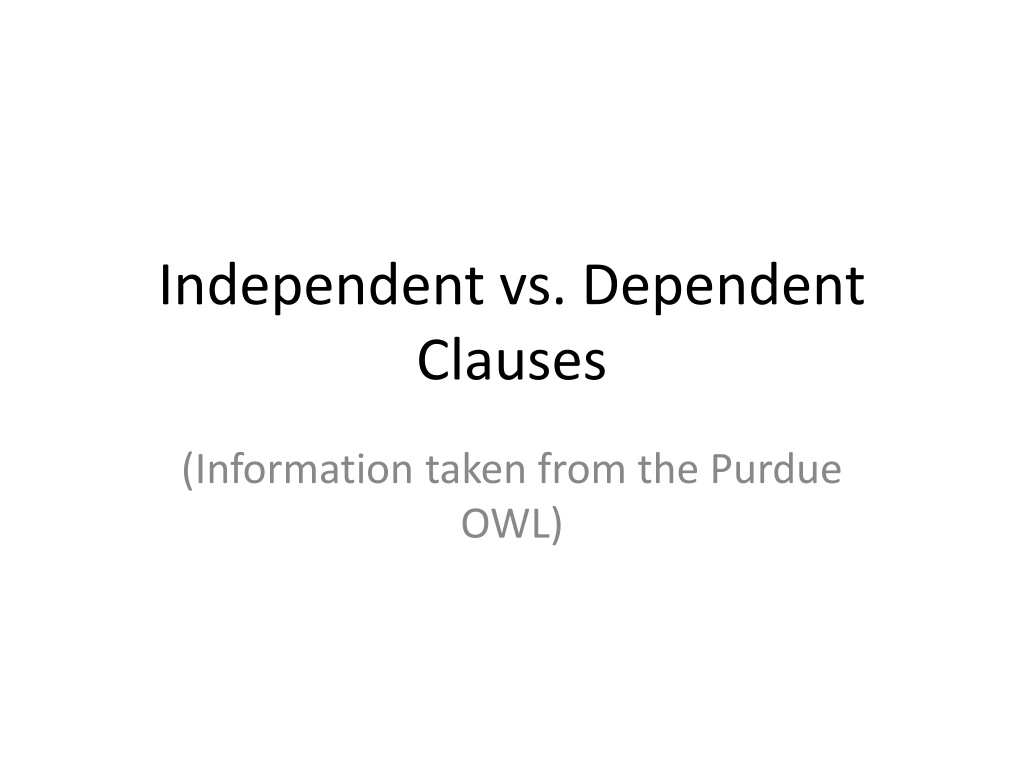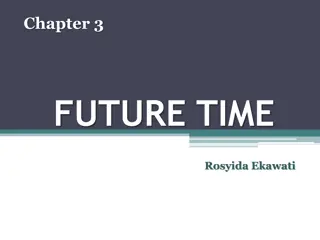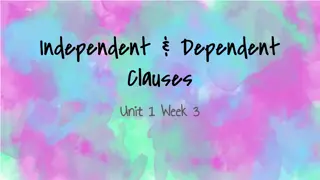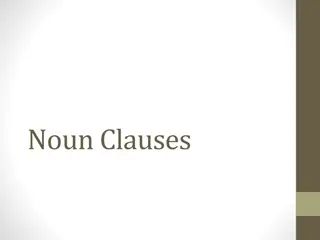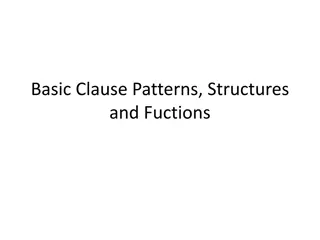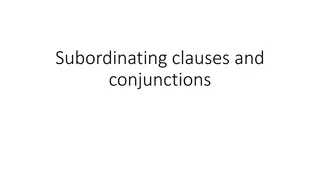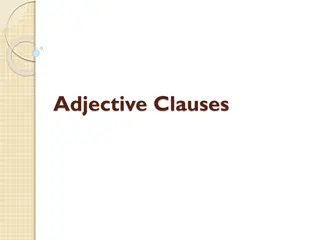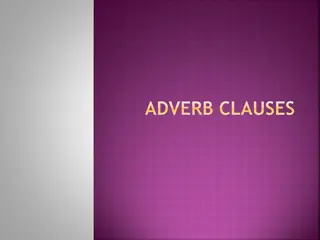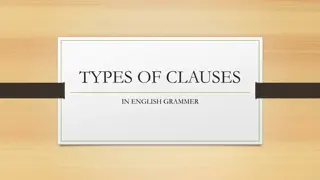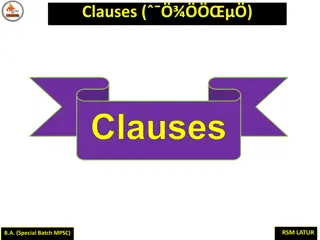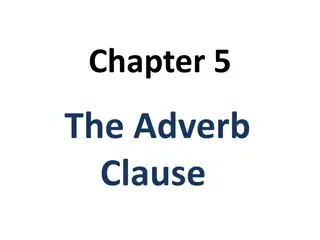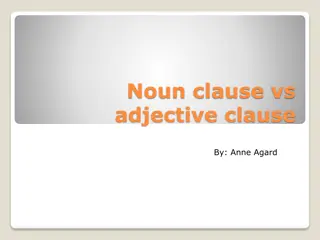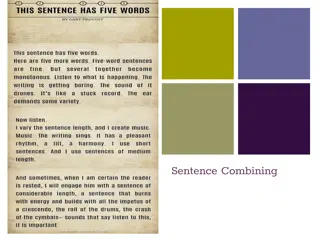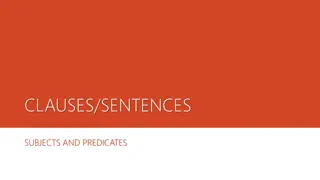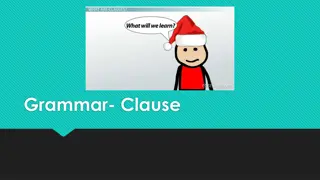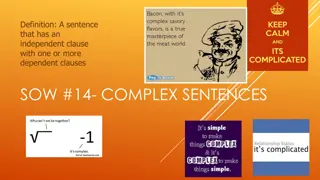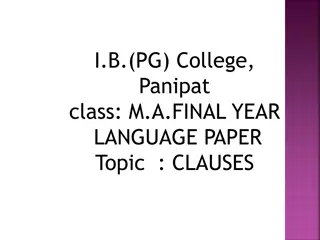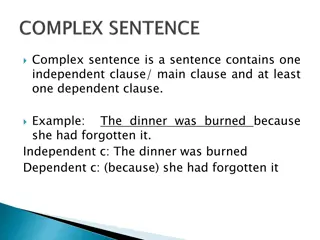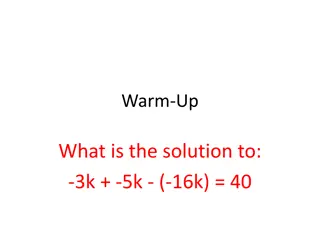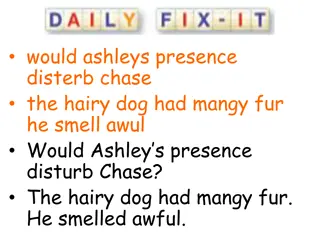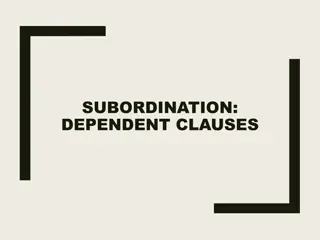Understanding Independent vs. Dependent Clauses
Independent clauses express complete thoughts and can stand alone as sentences, while dependent clauses require an independent clause for support. Learn about coordinating conjunctions, comma splices, and run-on sentences to enhance your understanding of sentence structure. Avoid common errors by recognizing and fixing issues such as comma splices and run-on sentences.
Download Presentation

Please find below an Image/Link to download the presentation.
The content on the website is provided AS IS for your information and personal use only. It may not be sold, licensed, or shared on other websites without obtaining consent from the author. Download presentation by click this link. If you encounter any issues during the download, it is possible that the publisher has removed the file from their server.
E N D
Presentation Transcript
Independent vs. Dependent Clauses (Information taken from the Purdue OWL)
Independent An independent clause is a group of words that contains a subject and verb and expresses a complete thought. An independent clause is a sentence. Jim studied in the library for his chemistry quiz.
Dependent A dependent clause is a group of words that contains a subject and verb but does not express a complete thought. A dependent clause cannot be a sentence. When Jim studied in the Sweet Shop for his chemistry quiz . . . (What happened when he studied? The thought is incomplete.)
Connecting the two The seven coordinating conjunctions used as connecting words at the beginning of an independent clause are FANBOYS. When the second independent clause in a sentence begins with a coordinating conjunction, a comma is needed before the coordinating conjunction: Jim studied in the library for his chemistry quiz, but it was hard to concentrate because of the noise.
Comma Splice A comma splice is the use of a comma between two independent clauses. You can usually fix the error by changing the comma to a period and therefore making the two clauses into two separate sentences, by changing the comma to a semicolon, or by making one clause dependent by inserting a dependent marker word in front of it.
Comma Splice Example Incorrect: I like this class, it is very interesting. Correct: I like this class. It is very interesting. (or) I like this class; it is very interesting. (or) I like this class, and it is very interesting. (or) I like this class because it is very interesting. (or) Because it is very interesting, I like this class.
Run-On Sentence Run-on sentences happen when there are two independent clauses not separated by any form of punctuation. The error can sometimes be corrected by adding a period, semicolon, or colon to separate the two sentences.
Run-On Examples Incorrect: My professor is intelligent I've learned a lot from her. Correct: My professor is intelligent. I've learned a lot from her. (or) My professor is intelligent; I've learned a lot from her. (or) My professor is intelligent, and I've learned a lot from her. (or) My professor is intelligent; moreover, I've learned a lot from her.
Sentence Fragments Sentence fragments happen by treating a dependent clause or other incomplete thought as a complete sentence. You can usually fix this error by combining it with another sentence to make a complete thought or by removing the dependent marker.
Fragments Examples Incorrect: Because I forgot the exam was today. Correct: Because I forgot the exam was today, I didn't study. (or) I forgot the exam was today.
